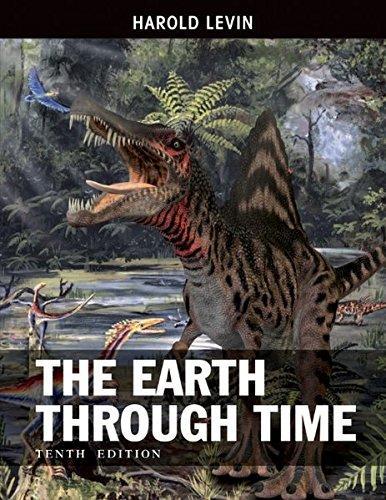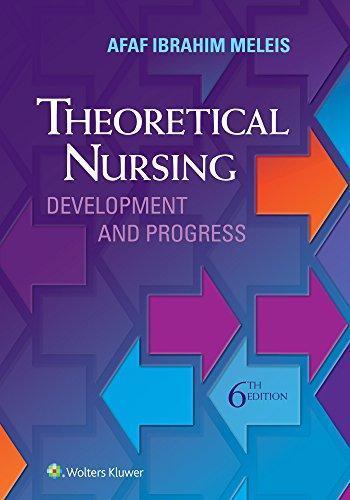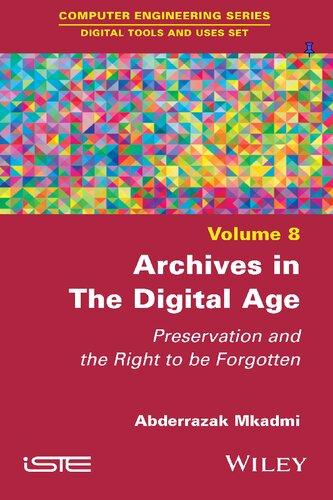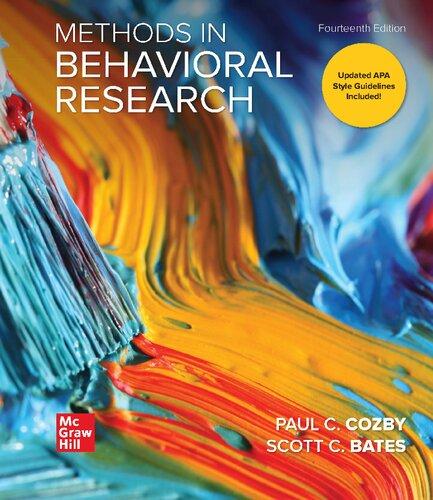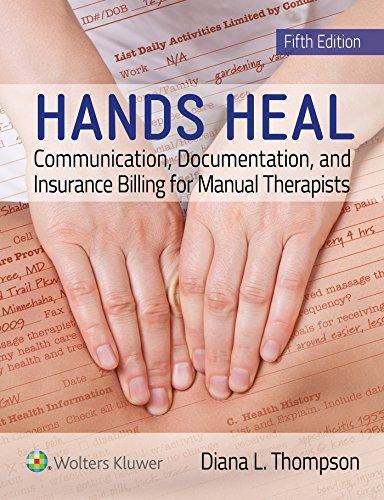Other documents randomly have different content
and their right to local self-government, and (3) because it has not been ratified by three fourths of the several States since it has not been submitted to the electorate of the States in which the initiative, or the referendum, or both, prevail (assignment of errors Nos. 1-5). These questions are discussed in points II, III, and IV, respectively. In point I the prior amendments to the Constitution are considered with reference to these contentions, and in point V the justiciability of the contentions is maintained.”
Its first challenge is itself the admission that all �������������� ability to change our Constitution is ability “granted” in the Fifth Article. Moreover, it is the flat denial of any �������������� mode of procedure in which the citizens of America, by a “Yes” from three fourths of their assembled “conventions,” can enact the legislation which is Section One of the supposed Eighteenth Amendment.
Its second challenge is wholly on behalf of the political entities, which are the states. It not only makes no claim for the rights of American citizens, but it denies any �������������� ability in the American citizens to interfere, by changing the American Constitution, with what the American citizens reserved to each state and its citizens.
The third challenge again fails to assert any claim on behalf of the rights of the American citizens. It is the challenge negatived by the third conclusion of the Supreme Court. It is the challenge that the citizens of the State, in some of the states, are part of the state legislature.
If we want further confirmation of our knowledge that this brief does not make the real challenge, namely, that the Fifth Article is no grant to the supposed grantors and the state governments, we find it in the fact that the brief itself refers over fifty times to the Fifth Article as a “grant” of limited ability to make Articles.
If we need further confirmation, we find it in this fact. After the Supreme Court had negatived every proposition in that brief, its writers made application for a reargument. The application was based on one ground as far as concerned the validity of the Amendment. That one ground was that the Court had written no
opinion. From this one fact, the claim was made that the Court could not have considered the potency of the three challenges which had been urged in the brief. Educated with the earlier Americans, we believe that each of these three challenges, in its very statement, shows why it is unsound, and that no opinion was needed to explain its refutation. But the nature of the application shows the continued concept of the Fifth Article as a “grant.”
If we look at the other briefs against validity, we will find all arguments based on the same monumental error that the Fifth Article is a “grant” and that the state legislatures are therein named the attorneys for the citizens of America, although the latter, as citizens of America, never elect a single member in those legislatures and the Tenth Amendment expressly declares that the Constitution gives no power of any kind to the states or their legislatures. On the impossible hypothesis of this monumental error are budded the most extraordinary arguments.
In more than one brief, it is urged that, in the Fifth Article, the whole people of America made a certain number of state legislatures their own attorneys in fact to amend the American Constitution. But, urges the brief, the American people have no power to change the state constitutions, and “therefore, the grantees,” the state legislatures, “cannot exceed the powers of their principal, the people of the United States.” And, the brief goes on, as the people of America cannot change a state constitution, neither can the attorneys in fact of that whole American people, the state legislatures, change it. The ability of the people or citizens of America and of “their” attorneys in fact, the state legislatures, is only competent to change the Constitution of the citizens of America. But this Eighteenth Amendment changes the Constitution of each state. Ergo, that change is clearly beyond the power of the citizens of America and “their” attorneys in fact, the state legislatures!
It will serve no useful purpose for us to dwell further upon the briefs against validity. They all show the universal conviction that the Fifth Article is a “grant” and makes the state legislatures attorneys in fact for ourselves, the citizens of America, who elect not a single member in the state legislatures. Naturally, as this fundamental error
is the invincible conviction of all counsel against validity before any brief is written, none of those briefs mentions such simple facts as the fact decided by the Supreme Court in Barron v. City of Baltimore, 7 Pet. 243. That decision, by John Marshall, decisively settled the legal fact that the Fifth Article grants no power to the state legislatures to make the Eighteenth Amendment. And, as it also decisively settled that the Fifth Article does not give the state legislatures any power whatever, it destroys the absurd concept that the Fifth Article makes the state legislatures attorneys in fact for those who made the Fifth Article, the citizens of America, the “conventions” of the Fifth Article and the Seventh Article. But lawyers, who start to write briefs with the certain (although false) “knowledge” that the Fifth Article does make the state legislatures attorneys in fact for the citizens of America, neither know the meaning of that decision nor state the decision and its meaning and its effect upon the Eighteenth Amendment in the briefs which they write. The decision is very clear. We have met it earlier in our education herein. It will bear repetition right now, when we find fiftyseven lawyers all “knowing” that the Fifth Article (despite the declaration of the Tenth Amendment) does give power to the state governments and, by giving it, makes these governments attorneys in fact for the citizens of America.
Barron claimed that a state statute was void because it came in conflict with the restriction imposed by the Article which is the Fifth Amendment to the American Constitution. If the restriction applied to the state legislatures and their powers, the statute was clearly void. Therefore, as Marshall pointed out, the Court had but one question to solve, whether the American Constitution (in which is the Fifth Article) granted any power to the state governments. If it did, then general restrictions in that Constitution, as they clearly applied to all powers granted in that Constitution, applied to the state governments. On the contrary, if the Constitution granted no power to the state governments, general restrictions in the Constitution would not apply to the state governments. For which reason, the decision of the case itself was to depend on one thing alone, whether there was any power granted in the entire Constitution to
the state governments. If there was not, the decision would be against Barron.
The question thus presented is, we think, of great importance, but not of much difficulty. The Constitution was ordained and established by the people of the United States for themselves, for their own government, and not for the government of the individual states. Each state established a constitution for itself, and in that constitution provided such limitations and restrictions on the powers of its particular government as its judgment dictated. The people of the United States framed such a government for the United States as they supposed best adapted to their situation, and best calculated to promote their interests. The powers they conferred on this government were to be exercised by itself; and the limitations on power, if expressed in general terms, are naturally, and, we think, necessarily, applicable to the government created by the instrument. They are limitations of power granted in the instrument itself; not of distinct governments, framed by different persons and for different purposes.
It would have been impossible for Marshall to have stated more plainly that the “instrument,” the Constitution (which contains the Fifth Article), grants no powers whatever to the state governments. On that fact, the fact being the simple answer to the question “of great importance but not of much difficulty,” Marshall decided that the general restrictions (applying only to powers granted in the Constitution) did not apply at all to the state governments, to whom the Constitution granted no power whatever
And so we Americans, trying to find the “when” and “how” (between, 1907 and 1917) we became subjects, cannot find the supposed answer anywhere in the briefs against validity. All that we do find of interest to us, in those briefs, is that the briefers, either with or without knowledge of the fact, are meeting a claim that there never was an American citizen and that the American people became “subjects” when they made the Fifth Article on June 21st, 1788.
By reason of our education in the making of the Fifth Article, we know the answer to the absurd claim. The answer is one that cannot be denied unless there are facts which we have not learned in our education. Therefore, we go quickly to the briefs of those who make the claim, those who upheld the existence of the Eighteenth Amendment, to ascertain what are the new facts on which they base their claim that there never was an American citizen and that the Fifth Article made the American people “subjects.”
These opponents were led by Hughes. In this litigation, he should not have forgotten that there are limits to the powers of every government in America. In the following January, he appeared in the same Court, to prove that there is limit to the power of the supreme legislature in America, the Congress.
That Congress had passed a statute, known as the “Corrupt Practices Act.” In it, certain practices, at federal primary and other elections, were prohibited and made criminal offenses. His client had been tried and convicted by a jury as guilty of one of these practices in a primary election for the nomination to the Senate of America. On the appeal to the Supreme Court, Hughes urged that, as our American government is a government of enumerated powers, incidentally a fact which his claim for the state governments in the National Prohibition Cases flatly denies. Congress could not validly pass the statute, under which his client had been convicted, unless the power to pass a statute in that particular matter was found in some enumerated power in the Constitution. The Constitution clearly gave Congress power to pass laws concerning “elections” for federal officers. But, urged Hughes, the Americans of 1788, the “conventions” in the Fifth and Seventh Articles, did not know anything about “primary” elections. Therefore, urged Hughes, Congress has not the power to make the same thing a penal offense at “primary” elections, which Congress can make a penal offense at the regular elections. By a divided Court, this argument, based on the claim of limited power in the supreme legislature to prohibit what a candidate for Senator may do, was sustained and the conviction was reversed.
It is amazing, therefore, to turn to the Eighteenth Amendment brief of the same briefer, a few months earlier, and to find him contending for his clients therein, twenty-four governments of state citizens, an absolute omnipotence to interfere with individual freedom of American citizens on every subject. And it is startling to find, in this brief, audacious denial of any right in the Supreme Court even to consider whether these governments of state citizens have that omnipotence over the American citizen.
In the case of the candidate for Senator, it was his concept and his claim that the Supreme Court can decide that the supreme legislature in America had not the power to make a certain command to candidates for seats in the American Senate. This is the doctrine that the only government of the American citizens is a government of enumerated powers. In the Eighteenth Amendment litigation, the following is his contention, that thirty-six governments of state citizens (the inferior legislatures in America) have unlimited power, without any constitutional restraint, to make commands to the American citizens on any matter whatsoever:
“We submit that the conception involved in the bill of complaint, that an amendment duly submitted by Congress on the vote of two thirds of each House, and duly ratified by the legislatures of three fourths of the States, is still subject to judicial review, and may be held for naught through judicial action by virtue of a process of implied restrictions upon the amending power—restrictions which thus set up by judicial decree would be unalterable by any constitutional process—is a conception of the most extravagant character and opposed to the fundamental principles of our government. No principle of judicial action can possibly be invoked for sustaining such an authority. The propriety and advisability of amendments, which are not prohibited by the express exceptions in Article V, are necessarily confided to those through whose action the amendments are to be made.”
We are quite accustomed to have men like Anderson maintain that governments of state citizens have outlawed for the citizens of America a traffic which Madison hoped would take deep root everywhere in America, a rightful traffic by human beings “so
recognized by the usages of the commercial world, the laws of Congress, and the decisions of courts.” (Leisy v. Harden, 135 U.S. 100.)
When Americans were fighting on the battlefields of the Revolution for human liberty, Walter Butler stirred up the House of the Six Nations to make a home attack. It was natural, therefore, when Americans in 1918 were fighting on the battlefields of Europe for human liberty, that Anderson and men of his type should stir up the Houses of thirty-six nations to make a similar home attack. Americans will probably always have Butlers and Andersons to stir up home attacks, when Americans are away on the battlefields.
But it is a grave matter when one who has sat on the Bench of the Supreme Court later contends that the Court has no ability even to review an attempted effort of the legislatures of state citizens to command the citizens of America on a matter not enumerated in the First Article.
From the “conventions” of the early American citizens, we bring the knowledge that it is the bounden duty of the Supreme Court to determine that the governments of state citizens have no power whatever to interfere with the individual freedom of American citizens in any matter whatsoever From those “conventions,” we bring the certain knowledge that the main purpose of the establishment of the Supreme Court, as one department of the only and limited government of American citizens, was that the Supreme Court might protect every individual liberty of the American citizen from usurpation of power by all governments in America.
Any concept to the contrary is the most Tory doctrine ever stated as American law since July 4, 1776. It is blind to the fact that, by the Constitution, the whole American people, “in their aggregate capacity,” created a new nation of men and set it above the existing and continued federation of states; to the fact that the whole American people made that Constitution one with national Articles, relating to the government of men, and with federal Articles, relating to the government of states; and to the fact that the whole American people knew and settled that only “conventions” of themselves could
make national Articles, although state legislatures, as attorneys in fact for their respective states, could make federal Articles; and to the fact that the Tenth Amendment names two distinct reservees of existing power, “the states respectively,” who are the members of the subordinate federation, and “the people,” who are the members of the supreme nation of men; and to the fact that the Fifth Article grants no power whatever but mentions the “state legislatures,” who act for the members of the federation, and the “conventions,” who alone can ever act for the members of the supreme nation, when the latter are to make a change in their part of the Constitution, the national part.
But we find the brief of Hughes, like the briefs of his associates, actually challenging any right of review by the Supreme Court, when the attorneys in fact for the states and state citizens, although the states have nothing whatever to do with that part of the dual Constitution which relates to the nation of men, actually attempt to change the quantum of power (to interfere with their own individual freedom) granted by the nation of men to their only government. His challenge even goes to the extreme of boldly asserting that the “propriety and advisability of amendments,” even though they infringe upon the individual freedom of the members of the nation of men, must be finally determined by the governments of state citizens, which have nothing to do with the nation of men which is America. His challenge is that the Supreme Court is powerless to protect the liberty of the American citizens if thirty-six governments of state citizens decide to interfere with that liberty in matters not enumerated in the First Article.
The challenge is exactly the challenge of Lord North to the Americans in 1775. It is exactly the challenge which the British Parliament would make, if we were still its “subjects.” As basic American law, it is sheer nonsense.
When we remember the doctrine of this briefer, that there is a limit to the right of our supreme legislature to prohibit what a candidate for Senator may do, and compare it with this new Tory concept that three fourths of the inferior state governments can validly interfere with every personal liberty of ourselves, we have one or two
questions to ask the briefer Is it his thought that the supposed citizens of America made their Constitution with the sole intent that the personal rights of candidates for Senators should be secure and that the number of Senators from each state should remain the same? Is it his thought that the American citizens, from whose “conventions” we have just come, having settled these amazingly important things about Senators, then voluntarily granted omnipotence over every individual freedom in America to a fractional part of the inferior state governments, twenty-four of whom he represented in the litigation of 1920? Is it his thought that the whole American people have two governments, one the government of enumerated powers constituted in the First Article and the other the government of unlimited power constituted in the Fifth Article? Is it his thought that his inferior state governments, although all members of all the state governments collectively could not enact a statute interfering in the slightest degree with the American citizen, can issue any command whatever to the American citizen, and that the citizens of America must obey that command so long as the state governments call it an Amendment of the American Constitution?
It is our own certain knowledge that, when governments issue any command to the citizens of America and the command interferes with individual freedom, the maker of the command must show the grant of power to make that particular command. It is the Alpha and Omega of American law that no government has any just power to make any command to the citizens of America, except in a matter on which those citizens themselves have given that government the power to make that particular command. It is in the primer of American constitutional law, that there is no government of the citizens of America, except the government at Washington, and that it has no power to command the American citizen, interfering with his individual freedom, except in the matters named in the First Article. It is admitted by all, even by the writer of that brief and his colleagues, that the power to make the command which is the First Section of the Eighteenth Amendment, is not enumerated in that First Article. When, therefore, this counsel for twenty-four of the governments which made that command tells us that, after his client governments (at the suggestion of our government which could not make the
command) have passed upon the propriety and advisability of the command, we cannot have the Supreme Court even consider the ability of his client governments to make the command, our indignation is mingled with our mirth.
Our indignation need not be explained. Our mirth comes when we think of our needless fear that something might have happened between 1907 and 1917 by which we became “subjects” instead of the citizens we had been. Throughout our education we have always known that, if the Eighteenth Amendment (a �������� article made entirely by �����������) is in the Constitution, we are “subjects.” We have known that no legislative governments, before 1787 and after 1776, could have made this general command to the citizens of America, because, during those eleven years, there was no citizen of America and there were no governments in the world who could make any general command to the American people, interfering with their individual freedom on any subject. We have known, with certainty, that, if the Americans in the “conventions” (where we have sat) knew what they were doing and the Supreme Court, for a century, has known what they did, there were no governments in the world, up to the year 1907, who could make that command to the American citizens. We have gone everywhere to find what happened, between 1907 and 1917, to change the American citizens into “subjects” of the governments for whom this counsel appears. Now, after the fruitless search elsewhere, we are reading his brief to find out what did happen between 1907 and 1917. His plain answer, as we have already sensed, is—“�������.”
Our mirth entirely dispels our indignation, when we sense his full concept of the nature of that absurd Fifth Article “grant” to his government clients. That we may not mistake his concept, the most Tory concept ever stated as law in America since 1776, he explains it again and again in his briefs. It is his concept that the absurd supposed “grant” gives to his client governments, not one member of which is ever elected by the citizens of America, unlimited and constitutionally unrestrained power to interfere with the individual freedom of the American citizen on every matter or, as the
Declaration of ’76 put it, in its complaint against the English King and his legislature, to legislate for us on all matters whatsoever.
And our mirth is not lessened when we read, in this brief, John Marshall’s full statement of the making of the Constitution (with the Fifth Article in it) and John Marshall’s clear decision that it was all made by the citizens of America, the “conventions” of the Seventh and the Fifth Articles.
No statement of facts could ever be written, which more absolutely destroys the concept that the state governments have the omnipotence denied to the English Parliament, than the quotation from John Marshall which we read in this brief to support that concept.
Throughout the quotation, with which we are all very familiar, Marshall points out that there is a vital distinction, amazingly important to individual freedom, between the ability of the “conventions” (named by exactly the same name in the Fifth as well as the Seventh Article) and the limited ability of the same “legislatures” for which this counsel appeared in 1920. In the quotation Marshall points out that, when the American citizens are to make a �������� Article, like the First Article and the Eighteenth Amendment, there is but one way in which they can make it “safely, ����������� and wisely,” “by assembling in convention.” That all of us, including that counsel of 1920, may not find any excuse for an assumption that state governments can ever make Articles of that kind, Marshall dwells at length upon the inability of state governments or any governments to make them or any Article like them. He tells us that, when the American people make Articles of that kind, in the only way in which they can ever ����������� make Articles of that kind, by assembling in “conventions,” “they act in their states. But the measures they adopt do not, on that account, cease to be the measures of the people themselves or become the measures of the state governments.” “From these conventions the Constitution derives its whole authority.” “It required not the affirmance, and could not be negatived, by the state governments. The Constitution, when thus adopted, was of complete obligation and bound the state sovereignties.”
Up to the last short sentence we have just quoted from the decision so familiar to us, Hughes quotes at length and without omission. Hughes is in Court for those “state legislatures” and state sovereignties, which Marshall’s decision finds to be legislatures and sovereignties wholly inferior in ability to the “conventions” of the American people, named in the Fifth and Seventh Articles by exactly the same name—“conventions.” How does the great lawyer of 1920 find, in this Marshall decision, support for the unique idea that these state, governments are omnipotent over every right of the American citizens who sit in those “conventions”? His remarkable claim is that the state governments he represents have omnipotent ability to command or interfere with anything in America, except one thing. It is his claim that these governments have omnipotent ability to interfere with the citizens of America, with the Constitution of America, with the government of America, with anything in America, except that they cannot interfere with that one thing for which the Revolution was fought, the Statute of ’76 enacted and the Constitution established. In the view of Hughes, that one thing apparently is the right of every state to have the same number of Senators. Our indignation is entirely dispelled when we realize that he sincerely believes this nonsense. Our mirth is merely increased when we find him quoting, at some length, this decision of Marshall, evidently under the impression that the decision supports the nonsense.
But, we wonder why, at the particular point which we have reached in the Hughes quotation from Marshall, the former puts “stars” instead of the next paragraph in the Marshall decision? Certainly, when the great lawyer of 1920 has such faith in the omnipotence of his government clients over us their “subjects,” it cannot be that there is anything in the missing Marshall paragraph to disturb that faith! Yet, as we read the missing paragraph, with which we are quite familiar, doubt assails us. Is the great lawyer of 1920 sincere or does he know that the position of his clients in relation to the Eighteenth Amendment is nonsense?
What is the missing Marshall paragraph with which we are so familiar? Lo and behold! it is our constant companion throughout our
education in the days of the early Americans. It is the paragraph in which the Supreme Court, by Marshall, points out why the Philadelphia Convention of 1787 found themselves compelled to send their First Article, with its grant of national power like the grant in the Eighteenth Amendment, to the “conventions,” named in the Seventh and the Fifth Articles, because the state governments, the clients of Hughes, were known and recognized by everybody to be without ability to make national Articles. In other words, it is the paragraph in which Marshall announces what we have learned so clearly ourselves, that “to the formation of a league, such as was the Confederation [to the making of federal Articles] the state sovereignties were certainly competent. But when ‘in order to form a more perfect Union,’ it was deemed necessary to change this alliance into an effective government, possessing great and sovereign powers and acting directly on the people, the necessity of referring it to the people [the conventions of the Fifth and the Seventh Articles] and of deriving its powers directly from them was felt and acknowledged by all.”
We know this paragraph of Marshall’s, omitted from the Hughes brief, to be the epitome of everything that we have heard in the “conventions” which made the Fifth Article. We remember that even Henry, from the very fact that the “conventions” of the American citizens were assembled, knew that the then proposed Articles did grant power to interfere with human freedom. And we remember (because he knew the inability of state governments ever to make such grants) that, on the fact that “conventions” were assembled, he based his charge that the proposed Articles were �������� and not federal. We remember that the Tenth Amendment declares that the entire Constitution, including the Fifth Article, gave no power of any kind to those state governments. And so we know, what Henry knew, that the state governments did not have, and that the Fifth Article did not give them, any ability to make �������� Articles, like the First Article and the Eighteenth Amendment.
For which reason, we cannot (looking at the matter purely from the standpoint of lawyer’s attitude to his government clients) blame Hughes for putting the stars in his quotation from Marshall.
Eager to remain free citizens, eager to have all governments recognize that we are not “subjects,” we ourselves commend, to the writer of that brief and to all who uphold the Eighteenth Amendment, the entire decision of Marshall in M’Culloch v. Maryland. For instance, we commend this clear statement of basic American law: If any one proposition could command the universal assent of mankind [except those for the validity of the Eighteenth Amendment], we might expect it would be this:—That the government of the Union, though limited in its powers, is supreme within its sphere of action. This would seem to result necessarily from its nature. It is the government of all; its powers are delegated by all; it represents all, and acts for all. Though any one state may be willing to control its operations, no state is willing to allow others to control them. The nation, on those subjects on which it can act, must necessarily bind its component parts.
Among other things, this statement, itself but a repetition of everything that we have learned by our experience with early Americans, emphasizes the important fact that the nation, which is ourselves, has but one government, the government “limited in its power.” Which fact clearly demonstrates that the state governments, not being that one government of “limited powers,” are not the attorneys in fact for the citizens of America, in any matter whatsoever, and cannot command us, as they attempt to do in the First Section, or grant power to command us, as they attempt to do in the Second Section of the Eighteenth Amendment.
Again this same decision of Marshall holds clearly: “In America, the powers of sovereignty are divided between the governments of the Union and those of the State.” The claimed ability of the Hughes government clients, their claimed ability to make the �������� new Article in our Constitution, rests entirely upon the absurd doctrine that, above the two sovereignties which Marshall names, there is an omnipotent legislative sovereignty, without any constitutional restraint, the sovereignty of three fourths of the very state governments which Marshall mentions.
In the same M’Culloch v Maryland, Marshall pays a tribute to an accurate knowledge, which we have acquired in our education with the early Americans. It is the knowledge that everything in the Constitution denies any ability in even all the states as such, or in all the state governments, each of which is never anything but a government of the citizens of one state and their attorney in fact as state citizens, to alter in any way the �������� part of our Constitution (which Constitution is both national and federal) because the �������� part relates to direct interference with the individual freedom of the American citizens This is his tribute to the truth of the knowledge which we have acquired. He says that there is “a principle which so entirely pervades the Constitution, is so intermixed with the materials which compose it, so interwoven with its web, so blended with its texture, as to be incapable of being separated from it without rending it into shreds. This great principle is, that the Constitution and the laws made in pursuance thereof are supreme; that they control the Constitution and laws of the respective states and cannot be controlled by them.”
And so we average Americans find naught but encouragement in the brief of Hughes. From its quotations, from its every statement, we learn that we have known all the facts, before we read it, and that we are free citizens and not “subjects.” In that brief of the champion of champions of the governments that “made” the new �������� Article, we learn that there are no new facts on which to base the claim that we, the whole people of America, have another government besides the government of enumerated powers, the claim that we are “subjects” and that our new omnipotent Parliament wears the aspect of thirty-six inferior governments, each elected by the citizens of a nation which is not America.
In the brief of this champion, we find no pretense that there is any support for this weird claim. On the contrary we find the whole claim depending entirely upon the sheer assumption—asserted as if to state it was to state an axiom—that the Fifth Article is a “grant,” wherein the “conventions” grant to the grantors and to the state governments ability to exercise omnipotence over the American
citizens, ability to interfere with their individual freedom, in any matter whatsoever.
In his brief, Hughes emphatically asserts the truth that “the people never become a legislature.” Yet, the basis of his whole argument is that what “the people” of the Tenth Amendment expressly reserved to themselves may be given away by the “legislatures” of the states, although the “states” are an entirely different reservee in the Tenth Amendment. He does not know, what all knew when the Fifth Article was made, that the “conventions,” who made it and who are named in it, meant “the people” themselves. He does not know the tribute of Madison, in the Virginia convention which ratified the Fifth Article, to the American “conventions” in which the people themselves directly constituted new government of men; “Mr. Chairman: Nothing has excited more admiration in the world than the manner in which free governments have been established in America; for it was the first instance, from the creation of the world to the American Revolution, that free inhabitants have been seen deliberating on a form of government, and selecting such of their citizens as possessed their confidence, to determine upon and give effect to it.” (3 Ell. Deb. p. 616.)
Hughes does not know, as Story did, that the drafter and the makers of the Fifth Article put into it the lessons of their own experience in the making of national Articles, by the “conventions” of 1776, and in the making of federal Articles by the state “legislatures” between 1777 and 1781. “It is wise, therefore, in every government, and especially in a Republic, to provide means for altering and improving the fabric of government as time and experience or the new phases of human affairs may render proper to promote the happiness and safety of the people. The great principle to be sought is to make the changes practicable, but not too easy; to secure due deliberation and caution; and to follow experience, rather than to open a way for experiment suggested by mere speculation or theory.” (2 Story on the Constitution, Sec. 1827.)
For all of which reasons, Hughes and his associates, although they might be certain that the people never became the legislature,
were not aware that, to the Americans who made the Fifth Article, its “conventions” were “the people” of the Tenth Amendment.
Naturally, we are not surprised to find a briefer who ignores this fact, possibly the legal fact in America most important to individual liberty, also indulging in the monumental error of the thought that these “conventions,” in their Fifth Article, made a grant, to themselves and to his clients, of equal omnipotence over themselves, the citizens of America. We recognize that, if the Article was such a grant to his clients, the grant would have been the greatest grant ever made in the history of mankind. We recognize that it would have been a grant by three million free men, four years after the war by which they had become free men, surrendering to governments absolute control of every individual liberty and making themselves absolute “subjects.”
We know that Hughes did maintain that the one government created by or given any power in the Constitution, in which is the Fifth Article, had not power to forbid a candidate for Senator to do what he did. It is interesting and instructive to know that the same lawyer holds, as an axiom which needs no proof, that the same Constitution gave unlimited ability to his client governments to interfere with every individual liberty of the Americans who are not candidates for a Senatorship.
We have the word of the man who wrote the language of that Fifth Article that it is merely “a mode of procedure” in which may be exercised either the existing unlimited ability of ourselves in “conventions” or the limited ability of the state governments to make federal Articles. We recognize, no one who reads it could recognize otherwise, that the Fifth Article, outside of two exceptions to �������������� exercise of existing abilities to make Articles, contains nothing but procedural provisions. This knowledge we brought to the reading of the Hughes brief, after we had acquired the certainty in our education with the Americans who made the Fifth Article. Then we read this brief of the champion of champions for the validity of the supposed new Article and found therein the sheer assumption, as an axiom which needed no proof, that the Fifth
Article, with nothing but its procedural provisions, was a grant of omnipotence to his government clients over ourselves!
Imagine, therefore, our amazement and our amusement, in the same brief, to find this clear echo of the statement of Madison and of our own knowledge, this accurate and complete statement of exactly what the Fifth Article contains: “Article V, apart from procedural provisions, contains two limitations of the power to amend, as follows: ‘Provided that no Amendment which may be made prior, etc.’”
If, “apart from procedural provisions,” the Article has nothing but “two limitations” of existing abilities to make Articles, where does he or anyone find in it the greatest “grant” known to the history of mankind?
When this briefer made his argument for his client who had been a candidate for Senator, he had no attack to make upon the procedure in which Congress had passed the Corrupt Practices Act. When he went to ascertain whether Congress had the power to make that command, about “elections,” he did not look for the power in any “procedural provisions,” which prescribe how Congress should exercise its ability to make commands.
If this briefer or any lawyer were asked, on behalf of a client, to accept a bill of sale from an alleged attorney in fact of the owner of a cow, he would not seek, in any procedural provisions which prescribed how an attorney in fact can execute an instrument for his principal, to find the authority of the alleged attorney to sell the cow.
Why then, in an Article with naught but procedural provisions and two limitations on power to make Articles, do he and all his associates seek to find, and assert that they do find, grant of authority to the inferior governments of state citizens to give away every liberty which the citizens of America hold most dear?



